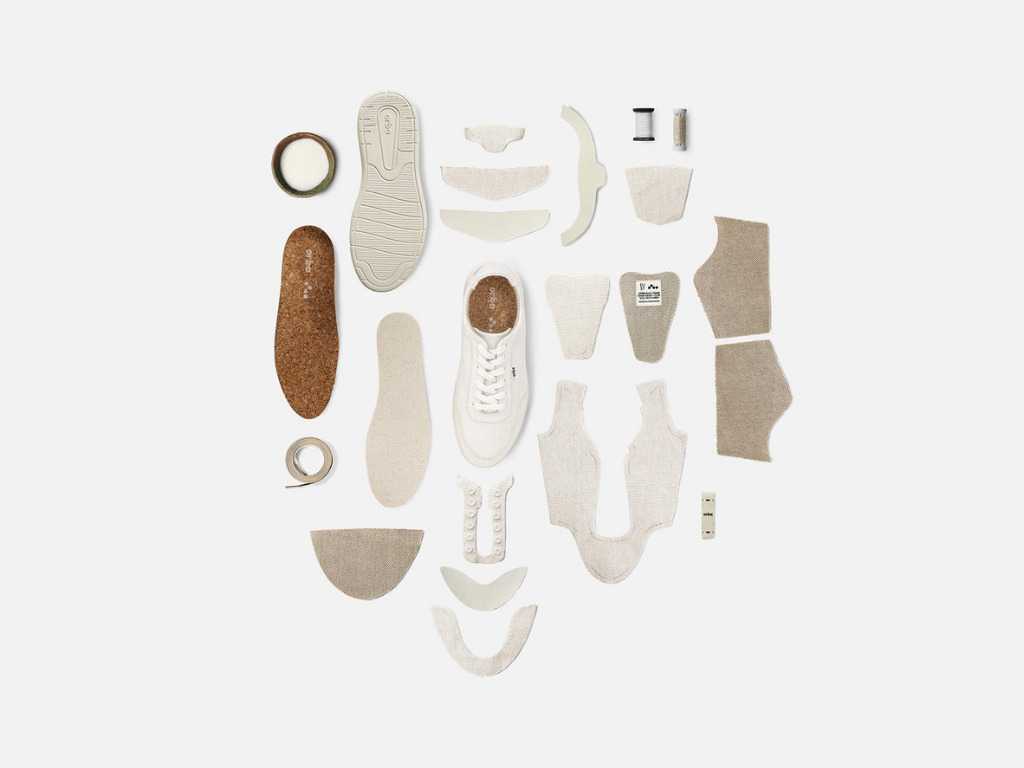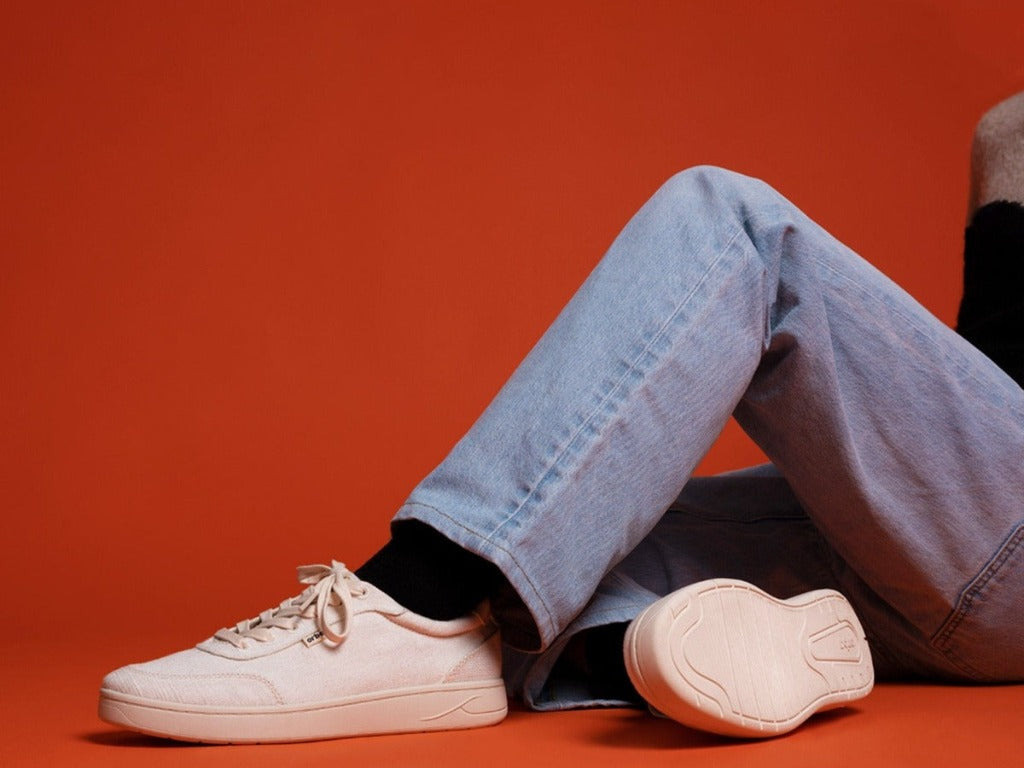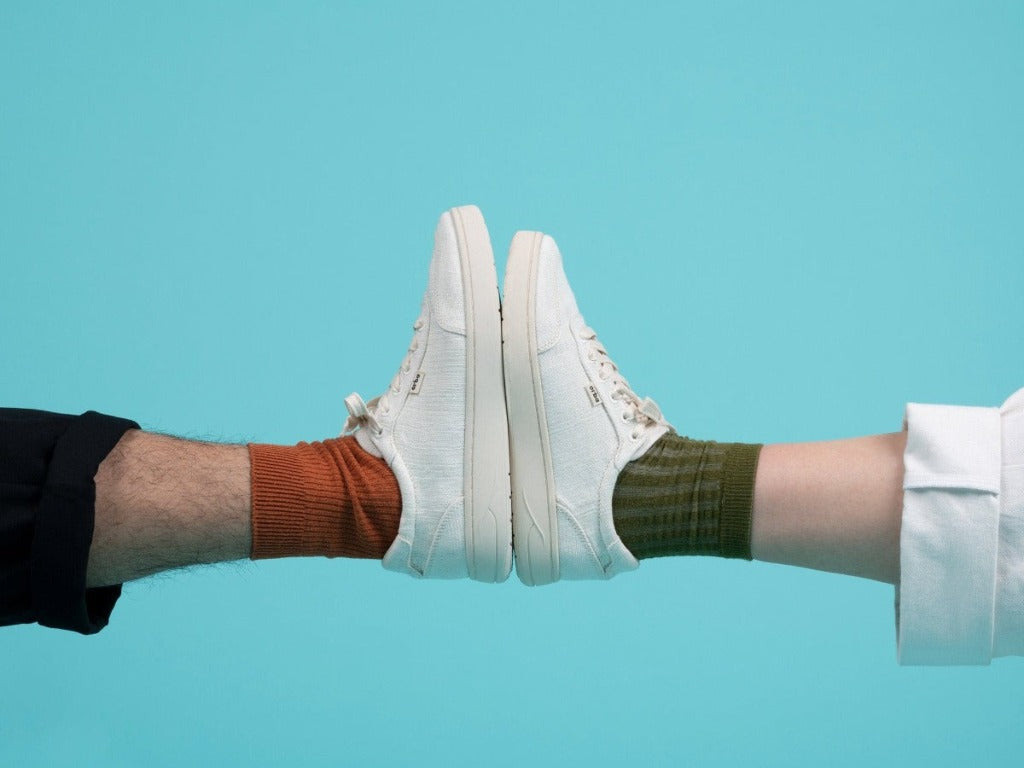3 Mins Read
New Zealand eco-footwear startup Orba says it has created the world’s first biodegradable eco sneakers. The shoes are designed to fully fall apart and decompose at the end of their life, leeching no toxins into the soil. They have been created to address an alarming issue, that of billions of shoes ending up in landfill each year.
Traditionally manufactured shoes contain materials and glues that do not biodegrade. They can take anywhere between 40 to 1,000 years to fully break down, creating toxins and carbon emissions as they do so. Most commercially available footwear contains a high percentage of plastic and synthetics, from soles to uppers.
While Orba claims to be the first truly biodegradable sneaker (and it appears it is the first to be commercially available), Brooklyn-based sneaker company Kengos debuted their beta Lace-Up model back in 2020 and described it as “biodegradable, vegan-friendly and made from 98% plant-based materials”, while Canadian designer Luc Houle launched a Kickstarter for a shoe that is “not only biodegradable, but can grow into an apple tree in its afterlife.”

Identifying a need
Orba cites 20 billion as the number of shoes made, each year, that contain synthetic materials that can’t biodegrade. The company claims to take an alternative route, by sourcing materials from nature, which makes them more sustainable and suitable for reclamation by soil.
The ‘Ghost’ sneaker is Orba’s contribution to the circular economy. A tested biodegradable sneaker, it is backed by science and independent audits to negate greenwashing concerns. Although biodegradable, Orba has set itself a target of making its shoes fully compostable in the future. The Ghost line has been available for six months, to date.
“We launched our Orba Ghost just six months ago, so to achieve both national and global recognition like this is incredibly exciting and validates our approach to design and sustainability,” co-founder Gillian Boucher said in a statement.
Composition of change
Orba has broken down its eco sneakers into individual composite parts, to offer full material transparency. The soles, traditionally made from petrochemical-based rubber, are created using natural rubber, rice husk and coconut oil. (Beeswax is included, making the shoes unsuitable for vegan shoppers, but alternatives are available). Uppers use flax canvas, hemp, and nettle, all of which are renewable and regenerative crops that can grow without pesticides. The footbed is a combination of cork, coir, and agave sisal.
Water-based glues are used throughout, though they are not natural or plant-based yet. Orba states this clearly and says it is looking to find a suitable alternative that will last a full life cycle and biodegrade at end of use.
A certified B Corp, Orba claims to have identified the effects of fast and synthetic fashion and sought to provide a solution. Careful to make every part of the supply and manufacturing chain transparent, it offers an alternative to the increasingly unreliable green claims of big brands.
Future goals include the development of 100 percent eco-certified shoes made from 100 percent eco-certified materials and glues. Alongside, it will aim to provide an in-depth analysis of its operational impact, including carbon footprint.

Hanging the greenwashers out to dry
Greenwashing has become a seemingly everyday activity for the fashion industry. Keen to cash in on a shift in consumer trends and motivations, companies are increasingly claiming to align with sustainable materials and practices. In reality, many are simply paying lip service and offering no traceability or proof of their newfound eco-credentials. Numerous steps are being taken to prevent greenwashing from continuing, including class action lawsuits and new legislation.
Changing Markets Foundation recently took repeat offenders to task with a protest at London Fashion Week and a greenwashing expose website lunch. Greenwash.com is styled as a virtual launderette, giving visitors a chance to see which brands and products are falling short of genuine environmental progress.
All photos by Orba.




